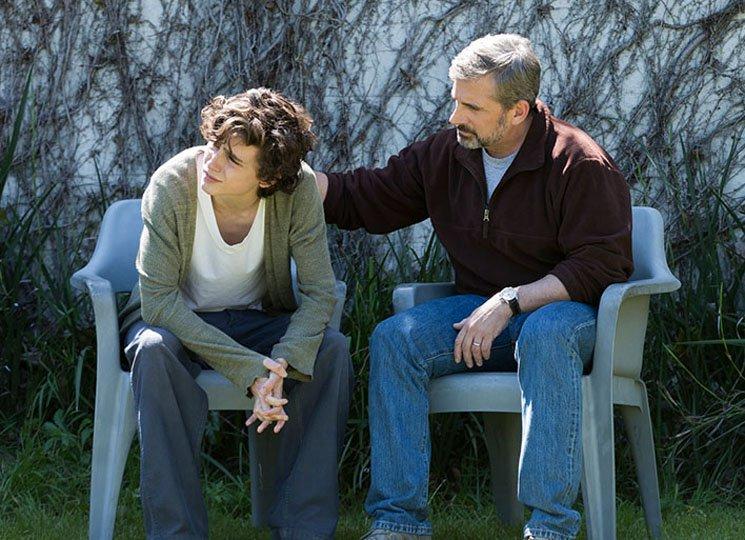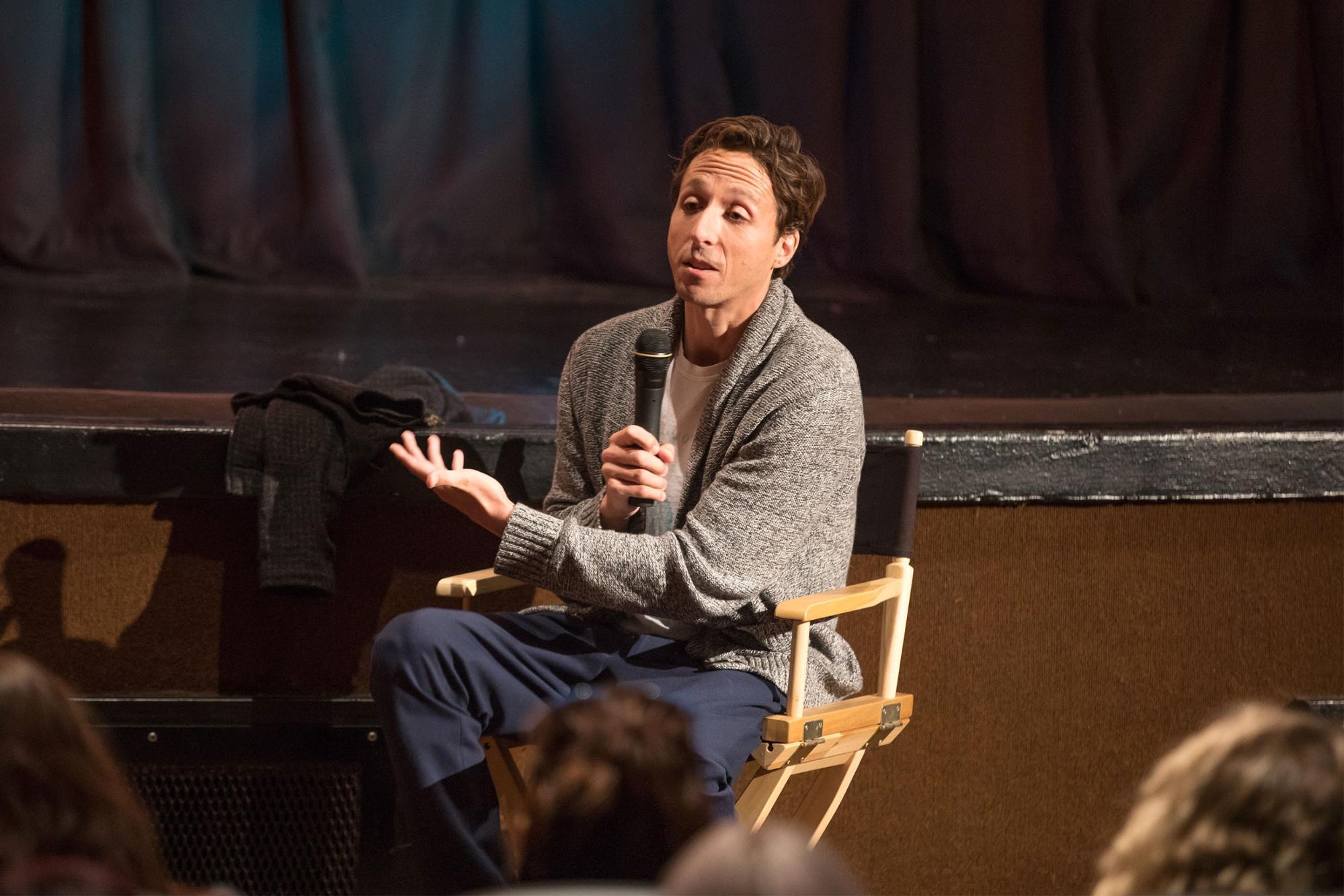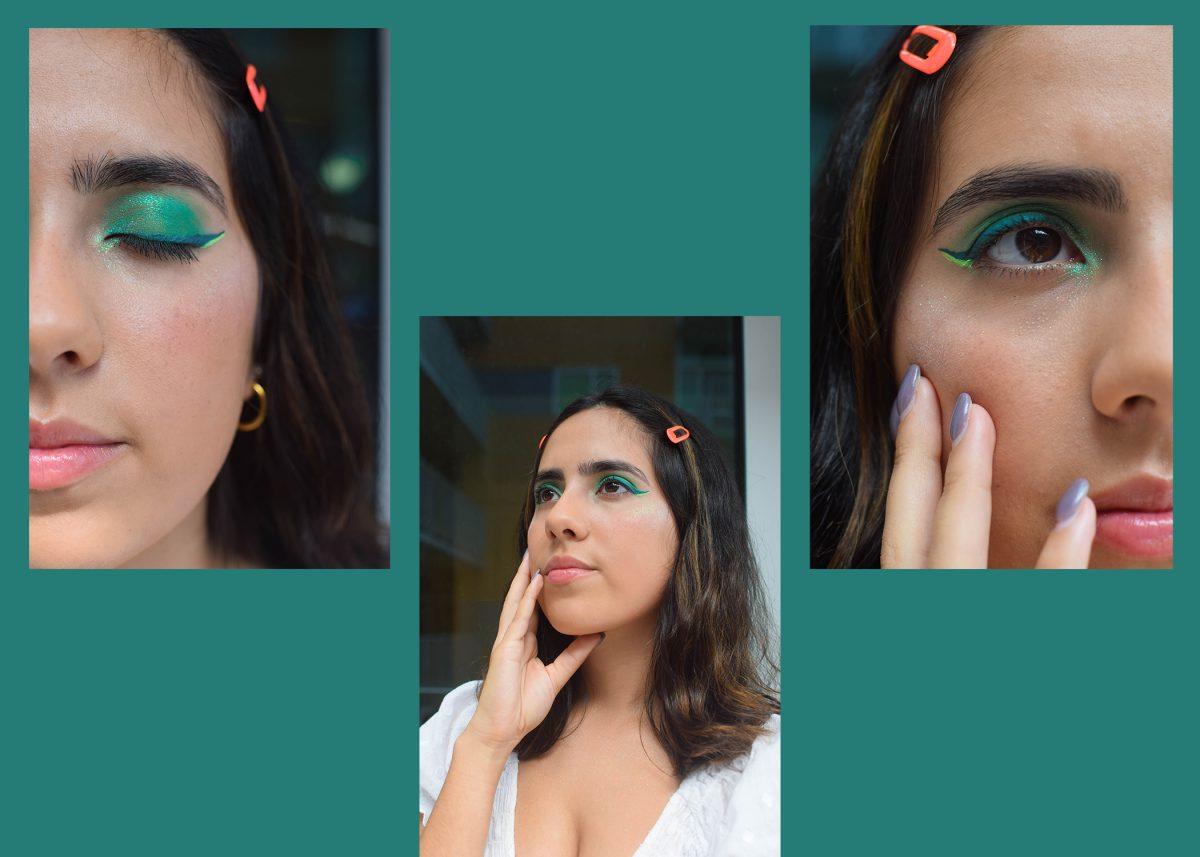Photo courtesy of Exclaim
On a visit to Austin to promote “Beautiful Boy,” Timothée Chalamet and Nic Sheff talk parents, portrayals and the perils of drug addiction during a public Q&A at Regal Arbor 8 Cinema.
Story by Zoe Judilla
Chalamet didn’t know queso was a dip. At least, that was the first thing he and Sheff told the audience as they arrived late to the Q&A from Torchy’s Tacos. The event took place after an advanced screening of the new film.
Based on the memoirs by David and Nic Sheff, “Beautiful Boy” follows the relationship between a father and son as the latter descends into a methamphetamine addiction during his teen and adult years. Steve Carell stars as father David Sheff, opposite Chalamet as the younger Nic Sheff. Chalamet sat down with his real-life counterpart in Austin to discuss filmic portrayals, the patience of parents and the perils of drug addiction.
Sheff described how the movie has been a positive experience for him. “When the books came out, I was really worried that people were going to judge me for being an addict, for everything that I went through,” Sheff says. “But I had the opposite experience. I was able to have these amazing conversations with people all across the country, and with the movie it feels like it’s just that on an even bigger scale.”
Sheff continually emphasized the importance of the film striving to eliminate the stigma surrounding addiction. “There’s no way to know who’s going to be addicted and who isn’t,” he says. “For me, growing up, I obviously never imagined I would be on the street, doing what I was doing. It wasn’t conceivable to me. What I learned, through a really painful process, was that addiction isn’t a choice, it’s a disease.”
Sheff said the universality of the film and its ability to connect with various people, whether struggling with addiction or far from it, was its driving force. Chalamet reinforced this by recognizing the themes of family and love as essential to Sheff’s story. “It’s definitely a more anxious experience when you’re playing someone because they’re real,” says Chalamet. “It’s a real story. Certainly this one, independent of any nature of the addiction of it, it’s just about family.”
Chalamet mentioned that being a son in a family provided a lens into his role. “I realized, this is a disease that affects everyone,” Chalamet says. “There’s no face to it. Play a human. Play a son. Play a brother. So if anything was pulled from my life, it was that feeling.”
Photo courtesy of People
Sheff was more than happy with Chalamet’s involvement with the project. “You just see in his performance, so much complexity to it,” says Sheff. “You can just see the way that Timmy plays that character, which is the way that I felt – this sensitive, good person that’s just being taken over by these drugs. And the fact that he was able to capture all that in one performance is so mind-blowing to me. I couldn’t be happier.”
While addiction has long been a central topic within film and television, most characters’ healing is portrayed as coming in the near future. “Beautiful Boy” produces a more realistic approach to the inevitability of relapse as essential to recovery. The story’s reliance on the familial dynamic suggests a commitment to love, both within and beyond disease, and its surprising persistence despite a recurrence of frustration and fear.
An emotional speaker from the audience recounted the loss of her sister to addiction, citing she had never seen a piece of work “so real or full of compassion.” She inquired about the thoughtfulness of the film and who its key audience was meant to be, struck by loss and its impact on her reception of the story.
Chalamet recognized this purpose in books and movies. “I would really hope, and you could be the judge of that, not me, that there’s a redemptive quality to, at least, the work. And not to put a ton of pressure here, but in Nic being here [as well].”
Sheff agreed, adding that the film served to address taboos about struggling with the ongoing ramifications of drug addiction. Sheff shared that he has personally relapsed multiple times past the point the movie ends on. He relapsed after writing about his addiction, after his father had written about it and even after they had gone on book tours for their respective memoirs. “It’s just really frustrating to see it happening over and over again,” Sheff says. “[The disease] is not getting the attention it deserves, and it’s not being talked about in the right way. So it just feels like an honor, I guess, to be able to share my story and have someone like Timothée be involved and help bring it to the world.”
Despite Sheff’s personal experiences with loss of friends and of self, he saw the undeniable strength of his father’s love for him as an anchor back to reality. “[Addiction] just – it doesn’t make any sense and it defies logic,” says Sheff. “ I think the only thing we can do is keep talking about it. One thing I think the movie does really well in that last scene with Timmy and Steve is that that love and that family – it’s gonna make me cry – is there, you know? It doesn’t ever go away.”
Sheff closed the panel by thanking the audience for attending. “Because that love is the thing that we have as human beings,” Sheff says. “And it just doesn’t ever go away. It’s always there.”
“Beautiful Boy” is playing in select theaters now.













































